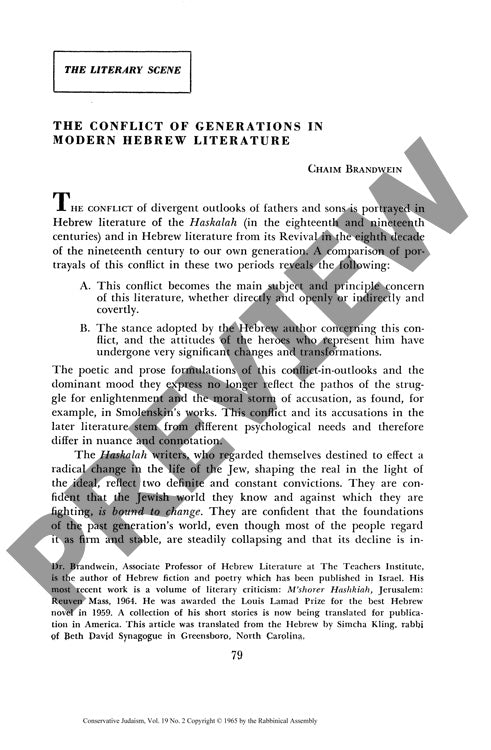The Conflict of Generations in Modern He
Couldn't load pickup availability
The confident revolutionary spirit that animated Hebrew literature's treatment of father-son conflict during the Haskalah period gave way to profound existential doubt and psychological fragmentation in the Revival era. Through comparative analysis of works by Smolenskin, Frishman, Berdichevsky, Feirberg, Brenner and others, a stark transformation emerges in how authors portrayed generational struggle across these periods. While Haskalah writers championed enlightened sons against traditionalist fathers in their mission of Jewish social transformation, Revival period authors depicted protagonists trapped between modernity and tradition, unable to fully inhabit either world. This literary evolution manifests in tragic outcomes - madness, suicide, and spiritual paralysis - as characters exist "at the borders" between collapsing cultural frameworks. Detailed textual analysis reveals how authorial stance and heroic attitudes shifted from ideological certainty to ironic awareness of irreparable cultural fragmentation, culminating in a three-fold tragedy that encompasses both generational perspectives and the broader crisis of Jewish modernization. The research traces this paradigm shift through close reading of canonical texts, mapping how intergenerational conflict evolved from subject matter to profound thematic concern across two centuries of Hebrew literature.

More Information
-
Physical Description
-
Publication Information
Published 1965
ISBN
-
Publication Credits
Chaim Brandwein

